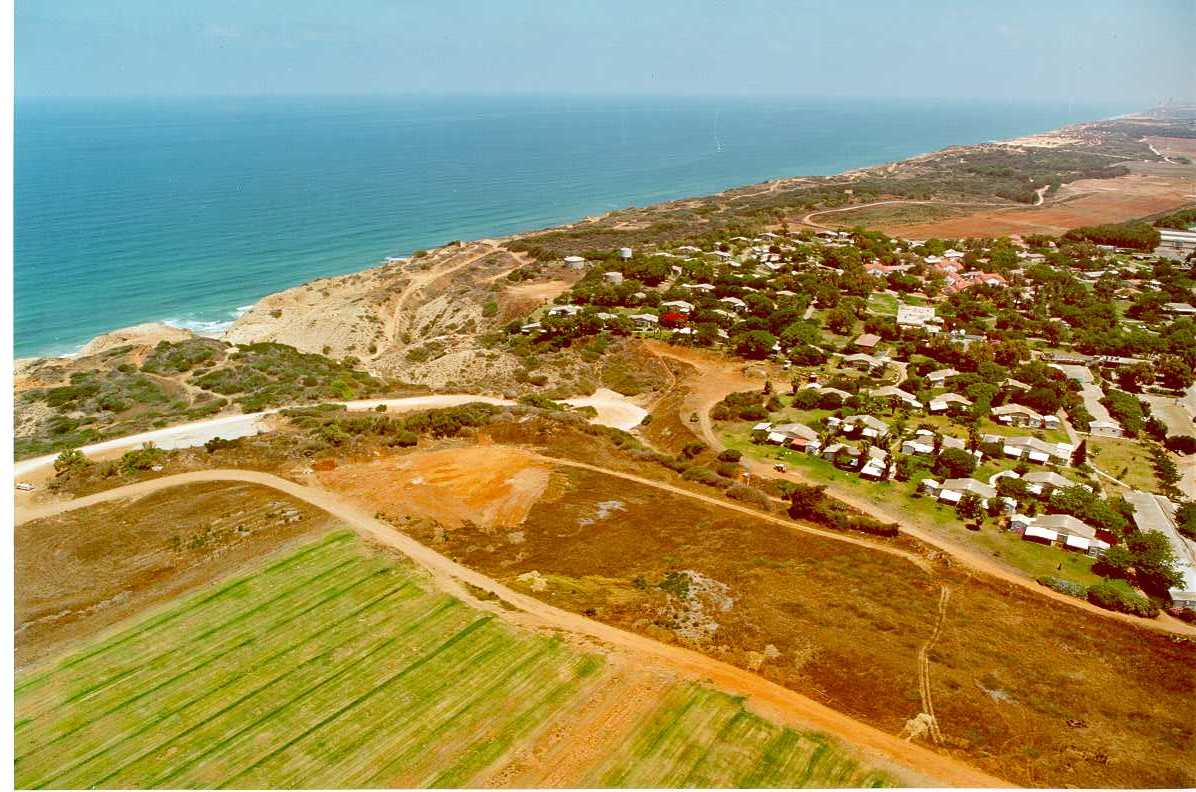The district court ruled that the kibbutzim Gaash and Sakum, controlled by Nati Seidof, should be compensated for the change in designation of their agricultural lands to a nature reserve.
Compensation: the central district court recently ruled that the kibbutzim Gaash and Sakum, controlled by businessman Nati Seidoff, who had acquired control of Shari Arison, would receive financial compensation of several million shekels. Indeed, part of the jointly owned agricultural land was preceded by a construction plan that was set aside after the approval of the regional master plan TAMAM 21. This plan changed the designation of vast agricultural lands in the central district to a reserve where construction is prohibited.
This concerns a plot of 530 dunams located between the kibbutz and the coastal road, part of which was promoted in the 90s by a plan changing the designation of 50 dunams of land from agriculture to commercial, employment, and industrial construction. The plan was promoted by the local planning and construction committee of Hof Hasharon and was submitted in 1998 to the district committee of the central district. No objections were raised. Later, the plan was promoted by higher planning institutions, when it was decided that it was inappropriate to promote a construction plan on the land. Meanwhile, TAMAM 21, which designated the land as a nature reserve, was approved in 2003, thus the district committee rejected the entire plan.
After the approval of the plan that designated the lands for the reserve, Kibbutz Ga’ash submitted a request for monetary compensation, which was rejected by the local committee. The kibbutz, like dozens of other landowners in the central district whose requests were rejected by local committees, appealed to the district appeals committee, claiming that it deserved financial compensation. The appeals committee, chaired by the president at the time, Micha Gidron, rejected the dozens of appeals filed by landowners in each central district, stating that they deserved monetary compensation after considering the modification of the designation of their agricultural lands. In this context, in 2013, the appeals committee partially accepted the appeal filed by Kibbutz Gaash regarding part of the land division shared with Kibbutz Veloscom.
Against the decision of the appeals committee, in 2016, the local planning and construction committee of Hof Hasharon filed an appeal with the district court, alleging that the proposed plan on the land did not justify any compensation, even partial, for Kibbutz Gaash. For its part, Kibbutz Gaash stated that the local committee’s appeal should be rejected and that the preceding plan created reasonable expectations regarding the zoning of one of the lots for construction purposes. It was also claimed that the preceding plan was not at the initial stage but had progressed much further than that of the court in question. Furthermore, Kibbutz Ga’ash asserted that the objection raised by HOLANAT against the plan only concerned the lot for which it was decided not to promote construction.
The Attorney General also joined the appeal, arguing that it was impossible to repair the damage caused by the loss of potential zoning modification, even if there had been an early procedure in the planning institutions. “The planning potential is truly damaged”
Judge Zahava Bustan of the central district court decided to reject the local committee’s appeal as well as the position of the legal advisor and to leave the decision of the appeals committee intact. Bustan accepted the position of Kibbutz Gaash that one of the plots for which the plan was promoted had been damaged.
Bustan also agreed with the decision of the appeals committee that, without the approval of Tamam 21, there was a reasonable chance that the plan to modify the designation of one of the lots for industrial agriculture would be approved and that the PNL’s objection referred to the additional lot, not the two plots. “In these circumstances,” Bustan stated in the court in question, “there was a real planning potential that was damaged with the approval of NAM 21, as determined by the appeals committee.”
At the same time, Bustan received an appeal filed by Kibbutz Gaash and Sakum regarding the amount of compensation owed to them. Bustan determined that the case would be referred to the extensive appraiser, so that the rate of damage caused to the plot in question would be calculated independently of the economic potential of the land. In other words, the gap between the previous situation and the new situation will be greater.
Kibbutz Ga’ash was represented by attorneys Daniel Abarbanel and Yossi Paluch of Yigal Arnon & Co.



